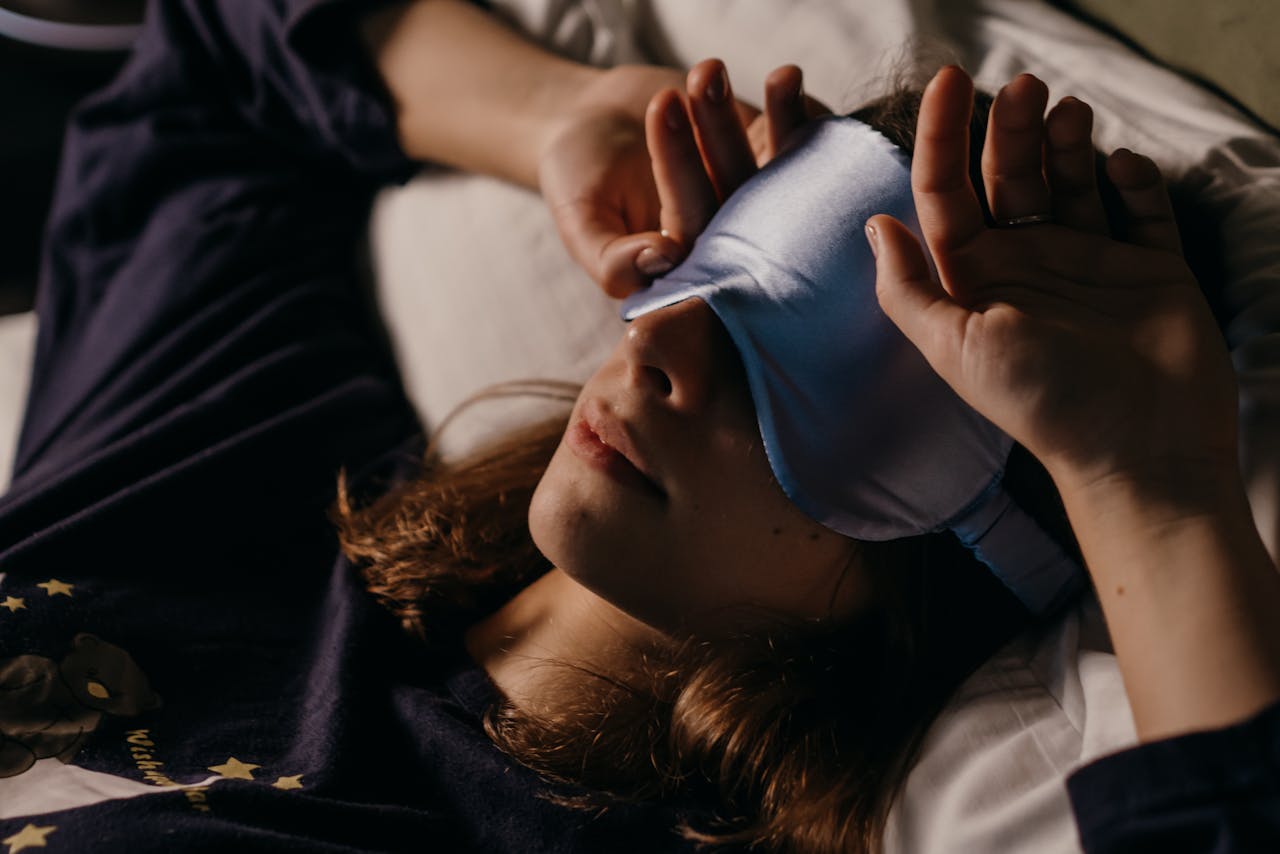Write Us: hello@ali5.org
How to Create a Night Routine That Actually Helps You Sleep
Want better sleep? Learn how to create a night routine that truly works, featuring calming habits, science-backed tips, and simple steps to fall asleep faster and wake up refreshed.

Most people treat sleep like an afterthought, something squeezed in between scrolling through social media and answering late-night texts. But here’s the truth: if your sleep sucks, your entire day will too. Your focus drops. Your energy tanks. Your mood gets moody. And that “just one bad night” easily turns into a pattern.
If you’re tired of lying awake at night while your brain spins like a washing machine, it’s time to fix what happens before you hit the pillow. Let’s talk about building a night routine that actually works and helps you sleep like a human again.
Why Your Current Routine Isn’t Working
Let’s call it what it is: most “routines” are just chaotic wind-downs.
Maybe you’re watching Netflix until your eyes blur, or aimlessly scrolling on your phone, thinking your body will magically know it’s bedtime. It won’t.
The truth is, your brain needs cues, consistency, quiet, and the right kind of stimulation (or lack of it) to shift gears from day mode to sleep mode.
Here’s where most people go wrong:
-
Inconsistent sleep and wake times
-
Blue light exposure right before bed
-
High-stimulus content (news, TikTok drama, or work emails)
-
Eating heavy meals late
-
Skipping physical wind-down rituals
Now let’s build a better system.
The Anatomy of a Real Night Routine
You don’t need a 2-hour checklist with bubble baths and journal prompts (unless that’s your thing). A good night routine is simple, intentional, and consistent. Here’s how to build one:
1. Set a Realistic Bedtime and Stick to It
Pick a time you can commit to, even on weekends. Going to bed and waking up at roughly the same time each day helps set your circadian rhythm, your internal clock. That rhythm needs consistency to function. If you sleep at 10 p.m. one night and 2 a.m. the next, your body stays confused.
Ideal goal: 7–9 hours of sleep, depending on your age and lifestyle.
Pro Tip: Count backward from your wake-up time. Need to be up by 7 a.m.? Try to be in bed by 10:30 p.m.
2. Ditch Screens at Least 45 Minutes Before Bed
Blue light messes with your melatonin production (the hormone that tells your body it’s time to sleep). You don’t have to be a saint and throw your phone in the freezer, but put it down 45 minutes before bed and replace it with something non-digital.
Good swaps:
-
Reading a physical book
-
Light stretching or yoga
-
Guided meditation (without staring at a screen)
-
Listening to calming music or sleep sounds
3. Keep Your Wind-Down Routine Short but Consistent
You don’t need to “romanticize” your routine, just commit to repeating it every night so your brain knows it’s time to slow down.
Sample 30-minute routine:
-
10 min: Wash your face, brush your teeth
-
5 min: Journal a few thoughts or to-dos to get them off your brain
-
10 min: Light stretching or deep breathing
-
5 min: Read or listen to something soothing
This repetition becomes a signal, kind of like dimming the lights in a theater before a movie.
4. Optimize Your Sleep Environment
You could have the best routine in the world, but if your room feels like a hot, noisy cave lit by a streetlamp, good luck.
Here’s how to set up a proper sleep space:
-
Darkness: blackout curtains or an eye mask
-
Cool temperature: 60–67°F (15–19°C) is ideal
-
Silence: use earplugs or a white noise machine
-
Comfortable bed and pillows: replace old pillows if needed
-
Zero clutter: your brain sleeps better in a tidy space
5. Don’t Eat or Drink Right Before Bed
Eating a heavy meal or drinking caffeine/alcohol within 2–3 hours of bedtime can mess with your digestion and sleep cycle. Even drinking too much water right before bed can wake you up for bathroom trips.
If you’re hungry, opt for a light snack like a banana, almonds, or chamomile tea.
6. Offload Your Brain
Ever tried to sleep while your brain replays everything you didn’t finish today or need to do tomorrow?
That’s common. That’s also solvable.
Try this trick: Keep a notebook by your bed and do a quick “brain dump” before sleeping. Write down:
-
What you did today
-
What’s stressing you out
-
What needs to get done tomorrow (just list it—don’t plan it)
Your brain relaxes when it knows it won’t forget something important.
7. Limit Stimulants, Especially in the Evening
Coffee at 4 p.m.? Not a great idea.
Caffeine can stay in your system for up to 10 hours, depending on how fast your body metabolizes it. Switch to decaf or herbal teas in the afternoon.
The same goes for intense workouts or emotionally heavy conversations late at night; they can spike your adrenaline and keep your body in alert mode.
What About Sleep Supplements?
Melatonin, magnesium, herbal blends, they’re everywhere now. And while they can help temporarily, don’t use them as a crutch unless you’ve cleaned up the rest of your routine first.
Your goal should be to fall asleep naturally, not rely on pills every night.
Talk to a doctor if you struggle with chronic insomnia or anxiety-driven sleep issues.
Final Thoughts: Consistency Wins
Creating a night routine that actually helps you sleep isn’t about perfection. It’s about giving your body what it needs: rhythm, quiet, comfort, and a clear signal that the day is done.
Start small. Don’t overhaul your entire life overnight. Just pick one or two habits from above and build from there.
Better sleep isn’t just about feeling less tired; it’s about giving your mind and body the recovery they need to show up fully tomorrow.







